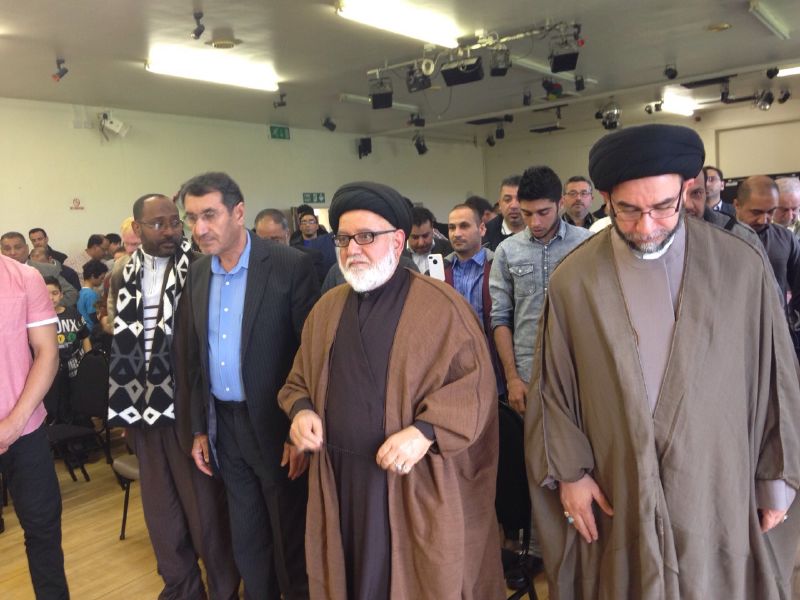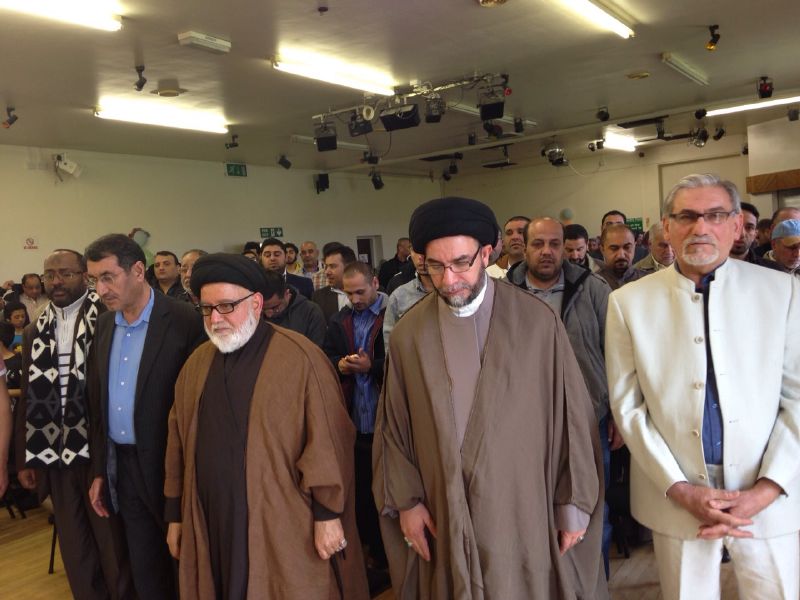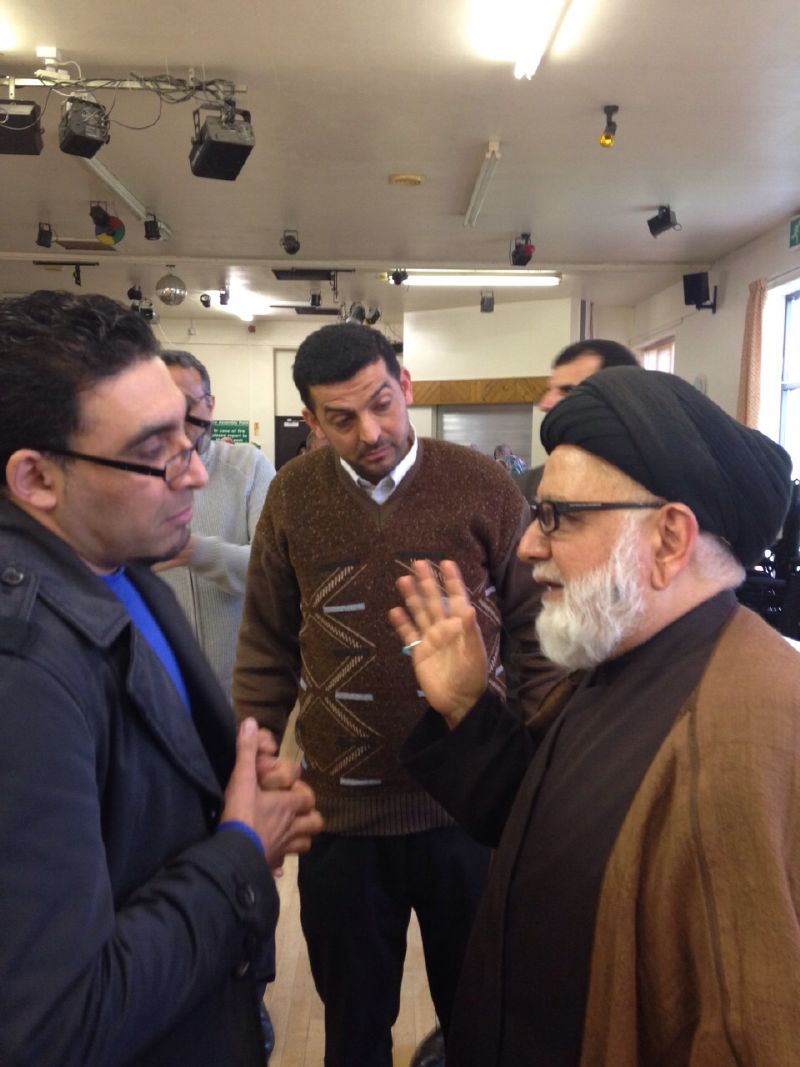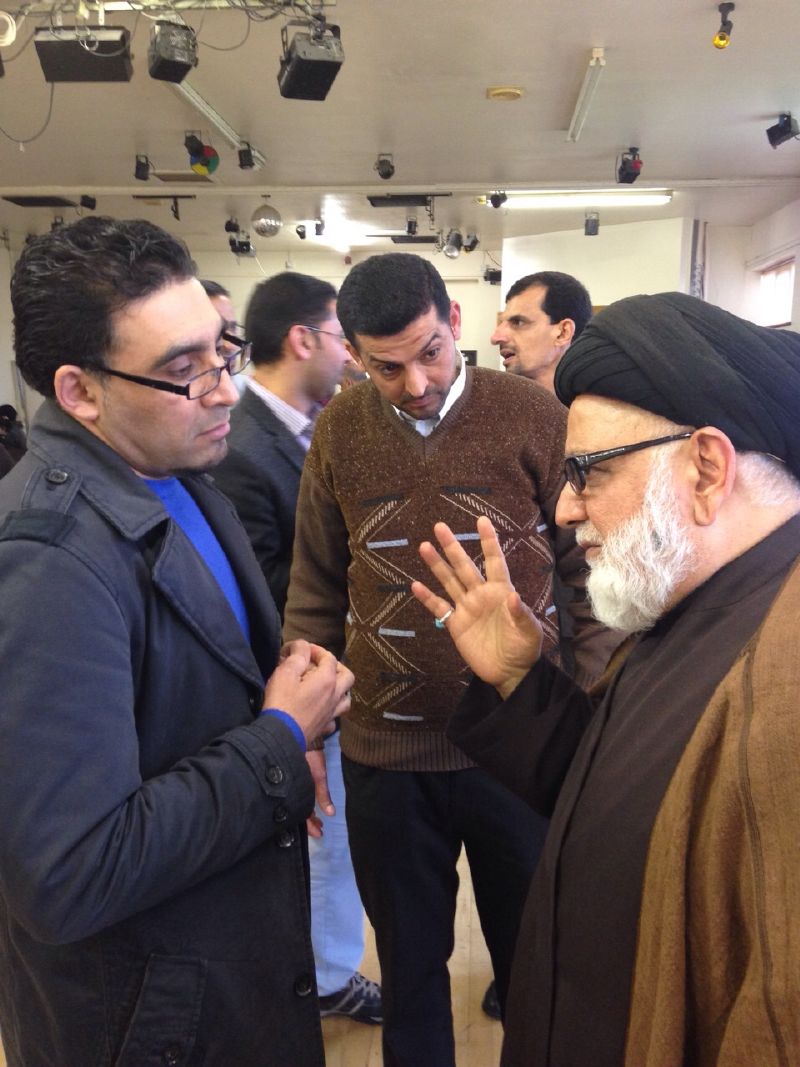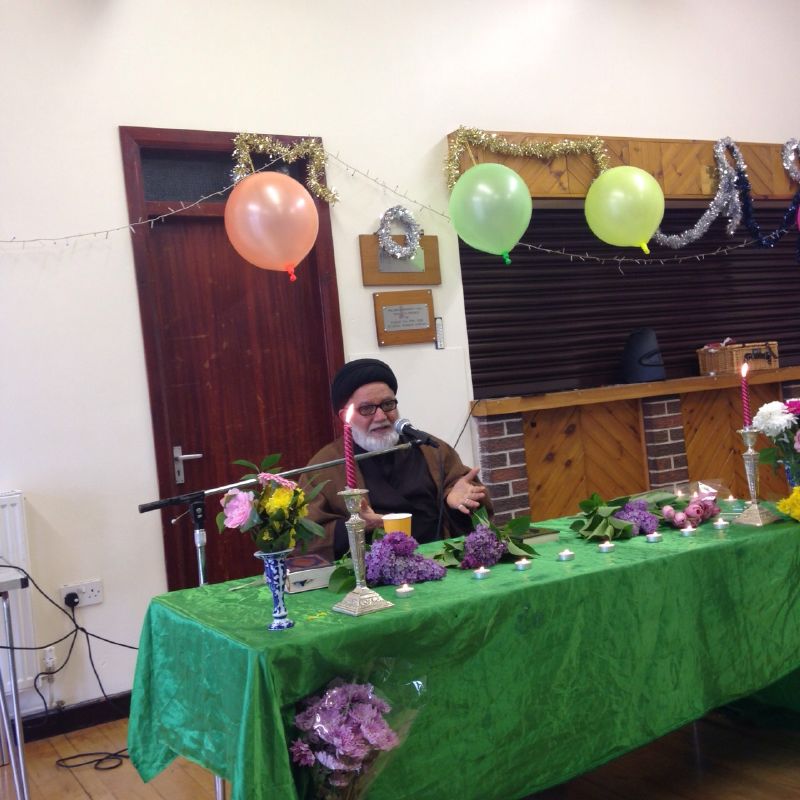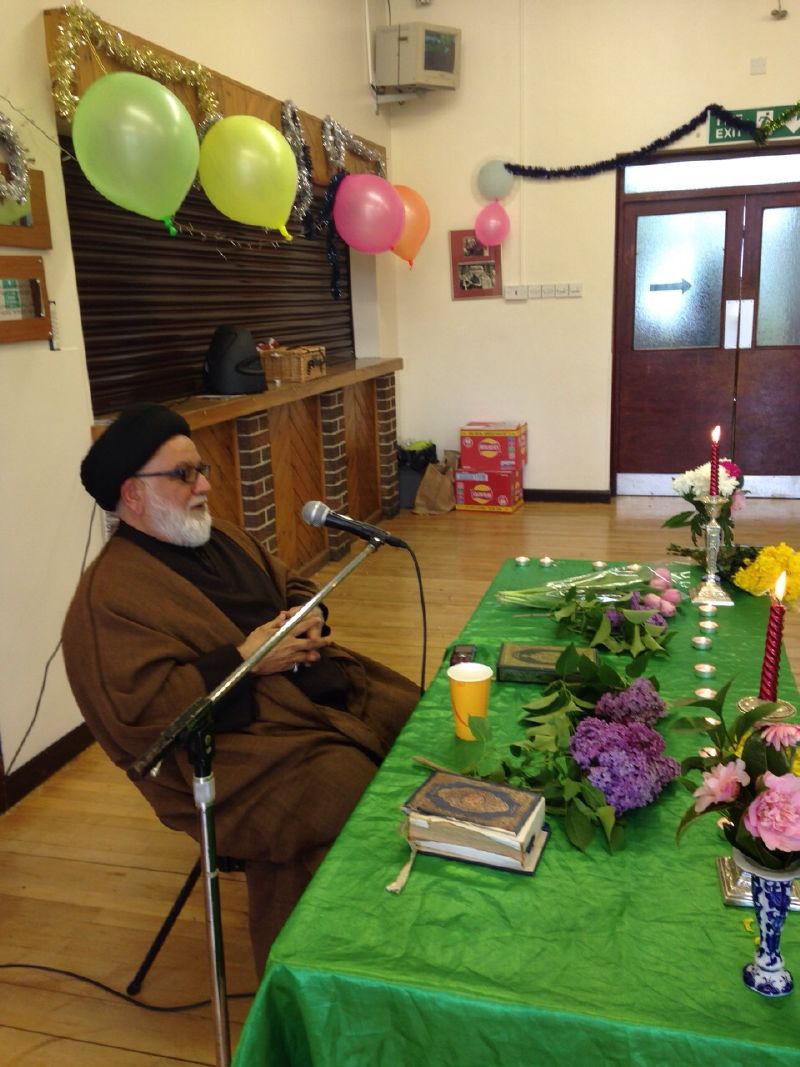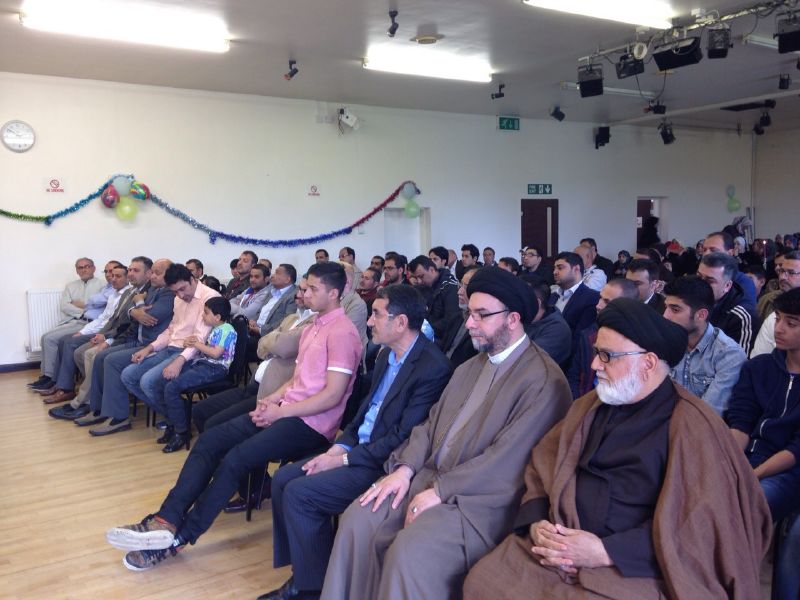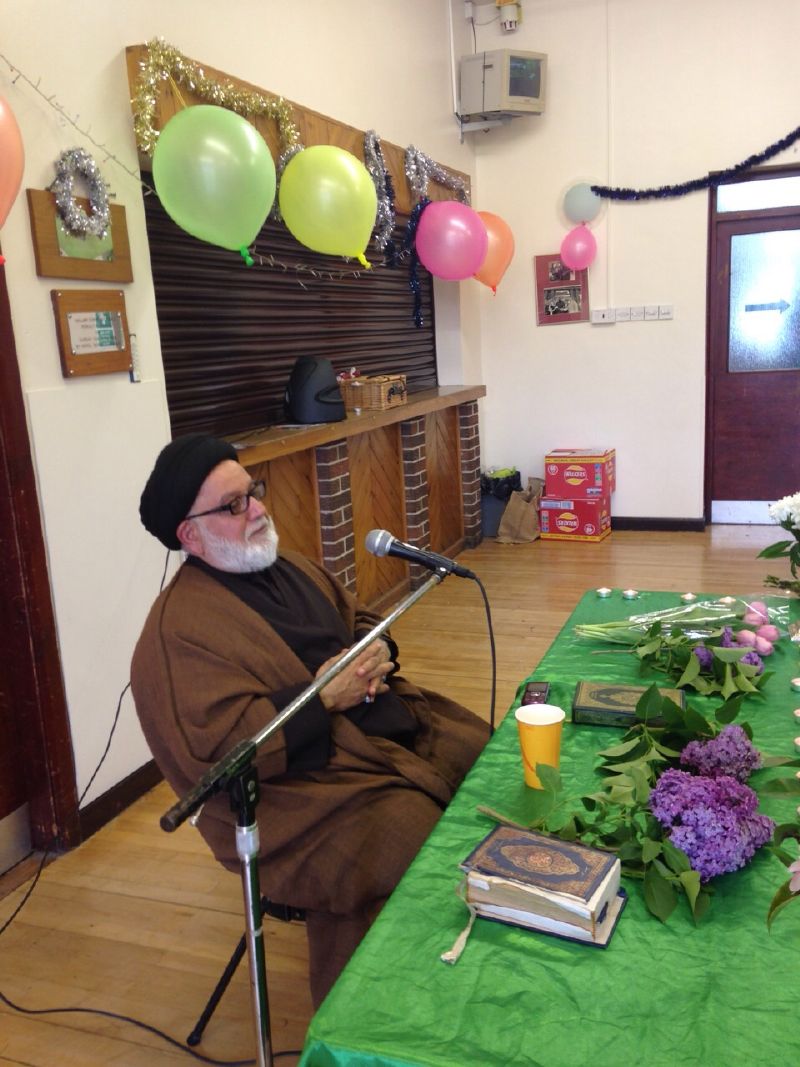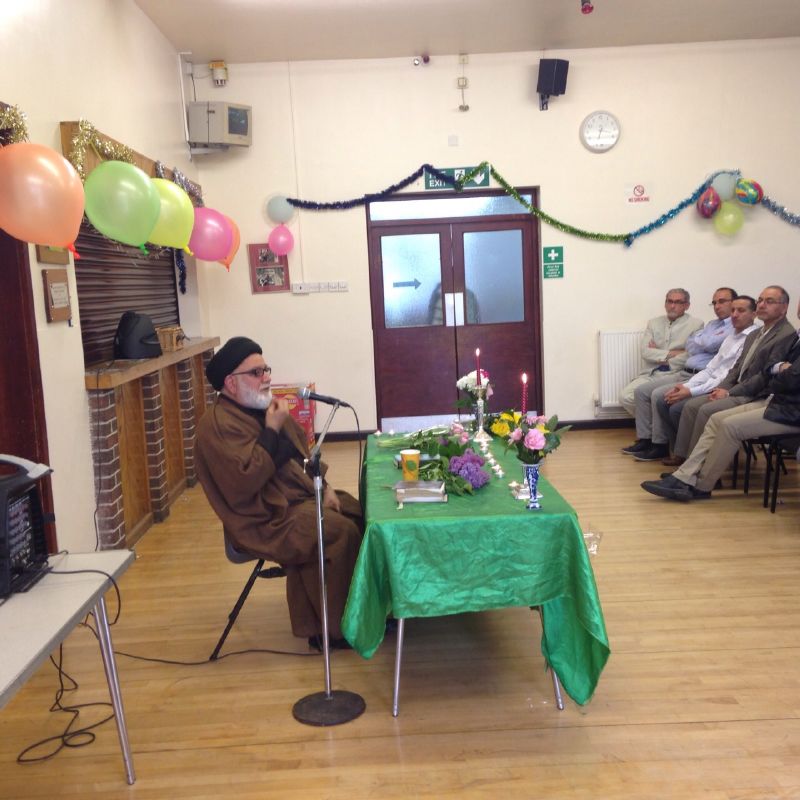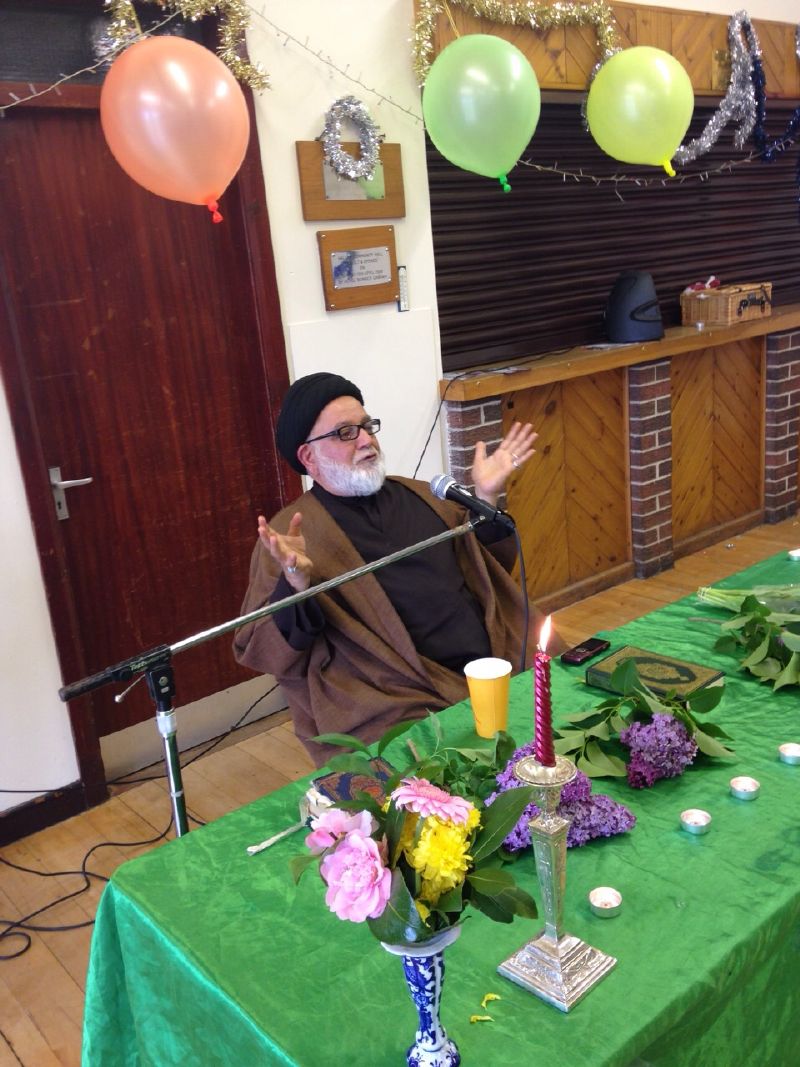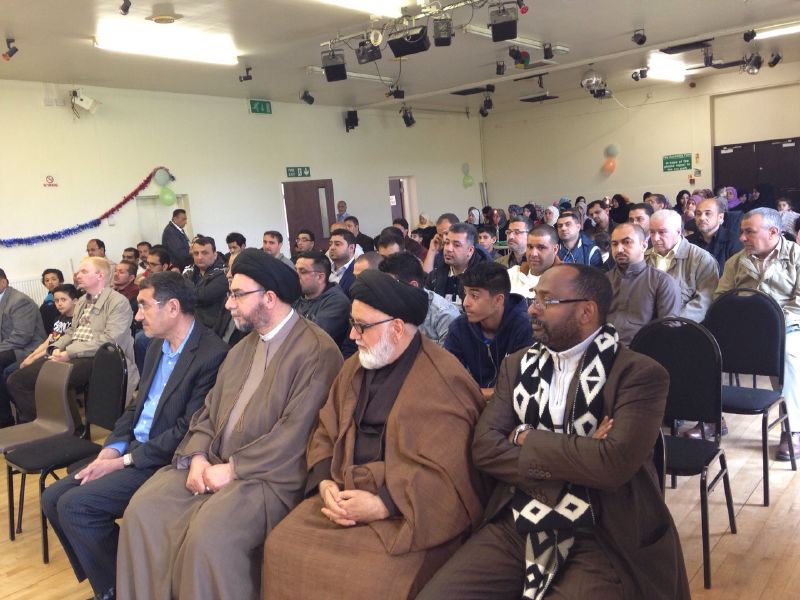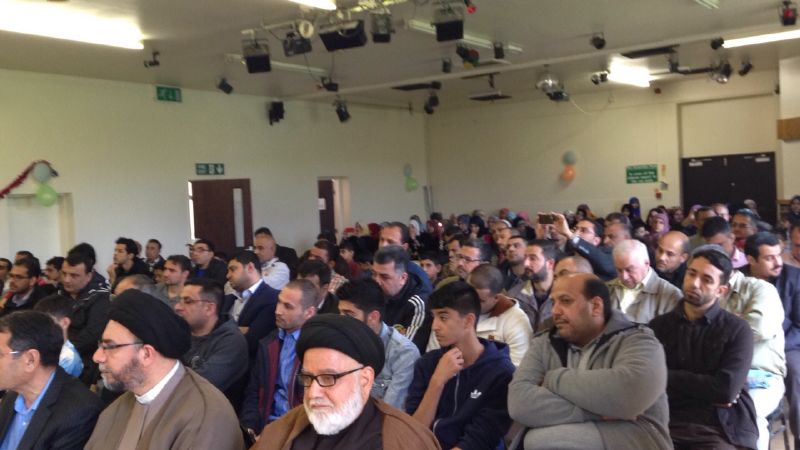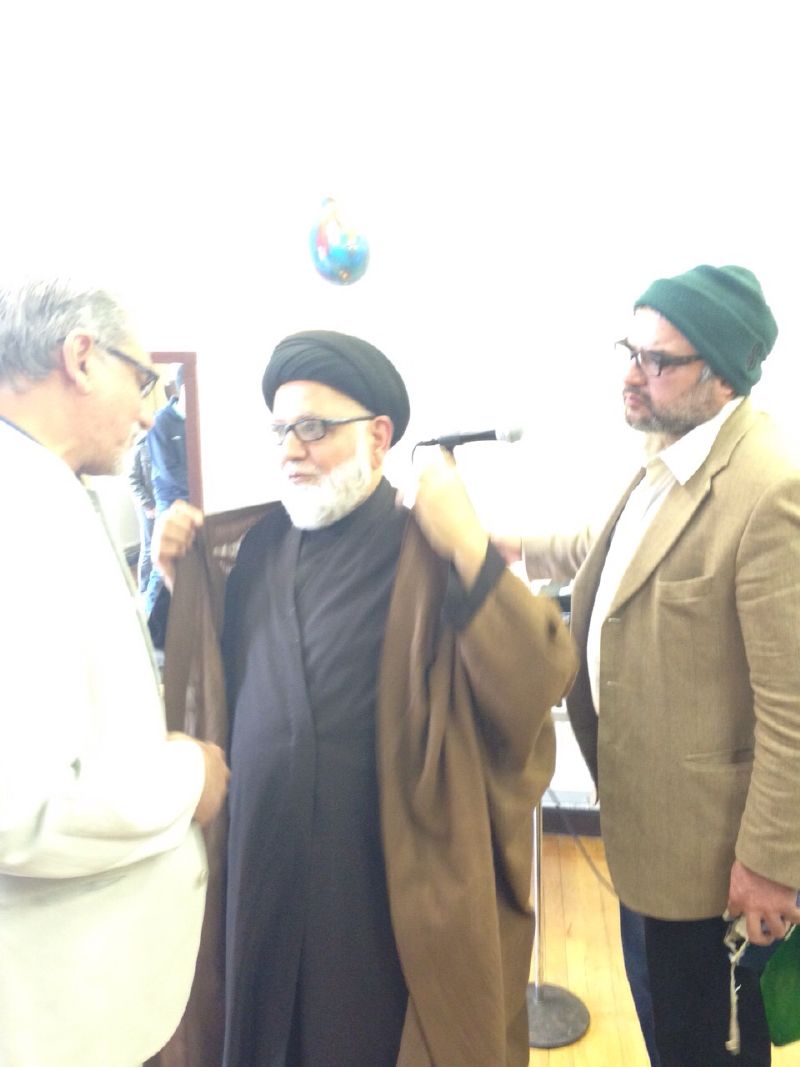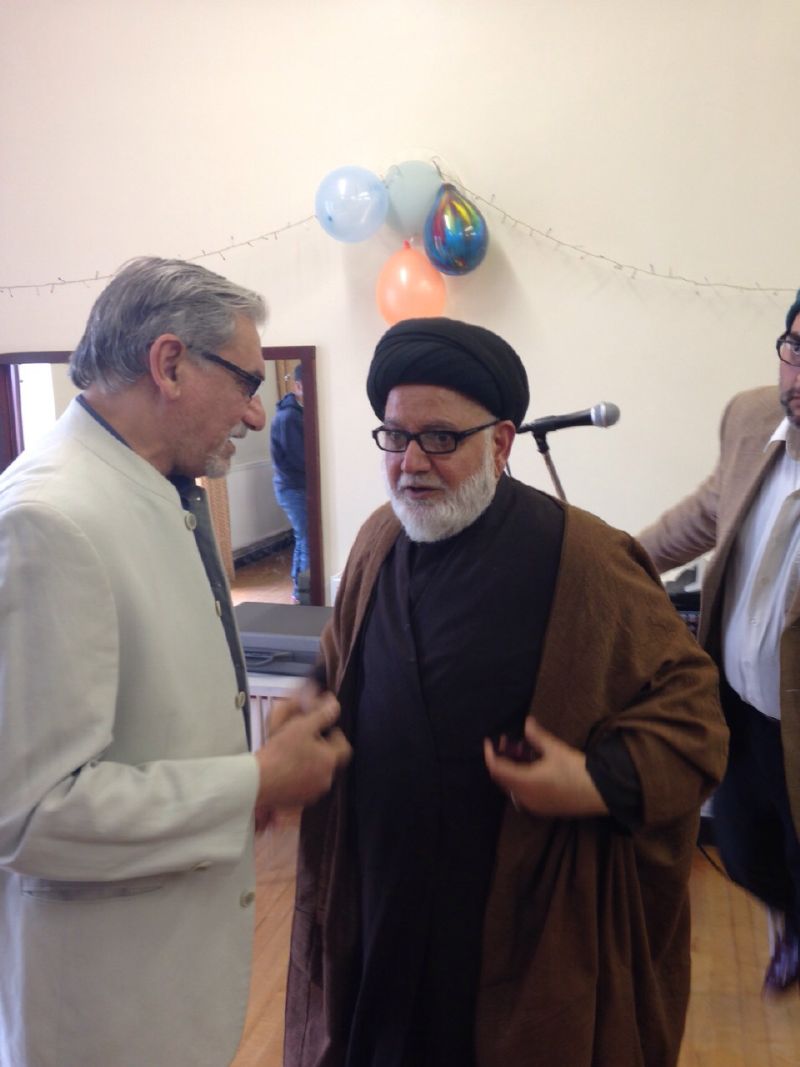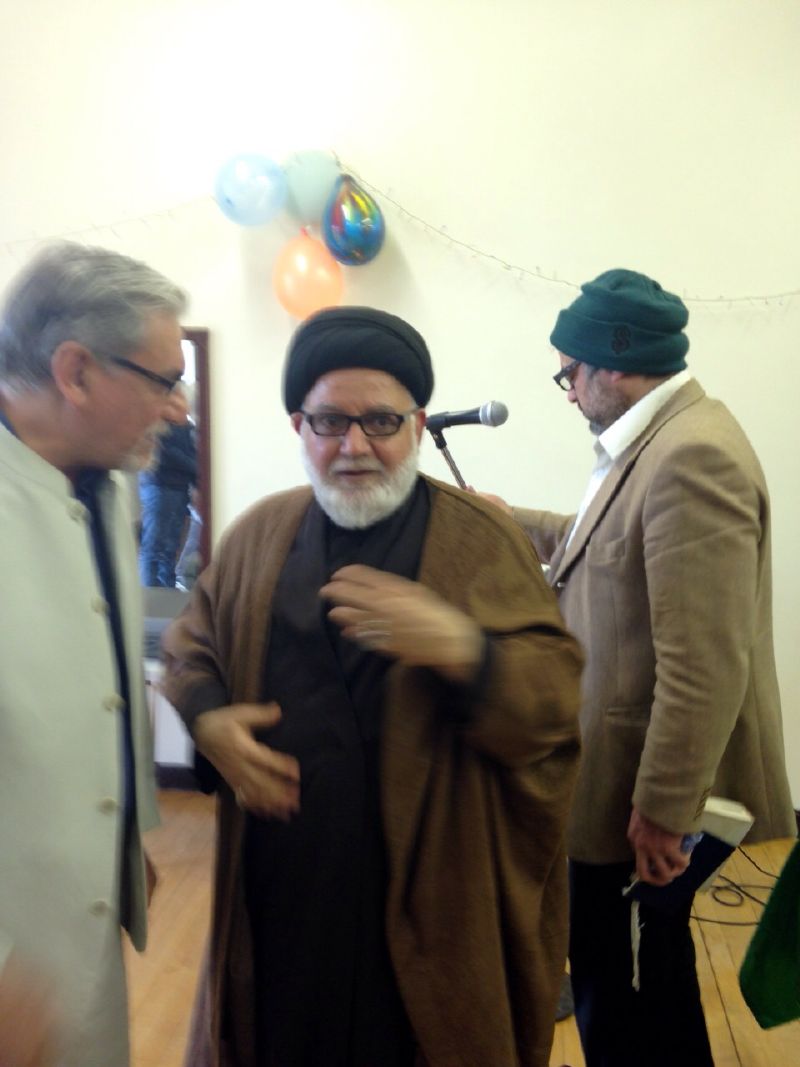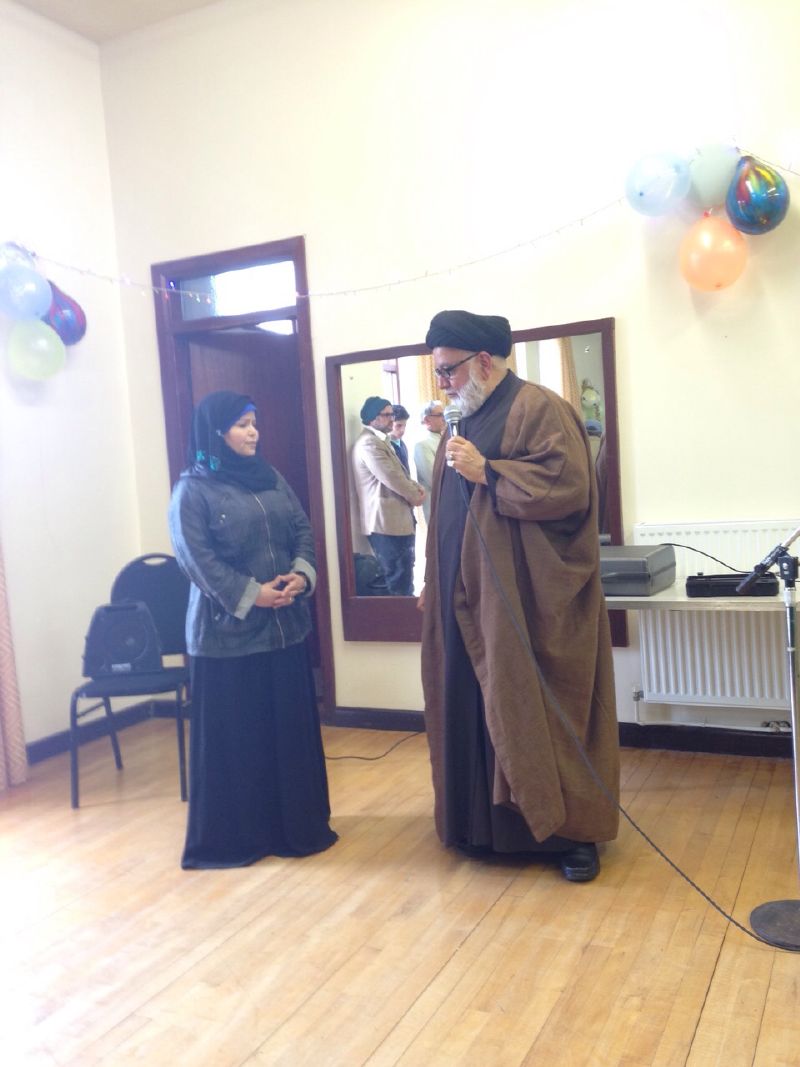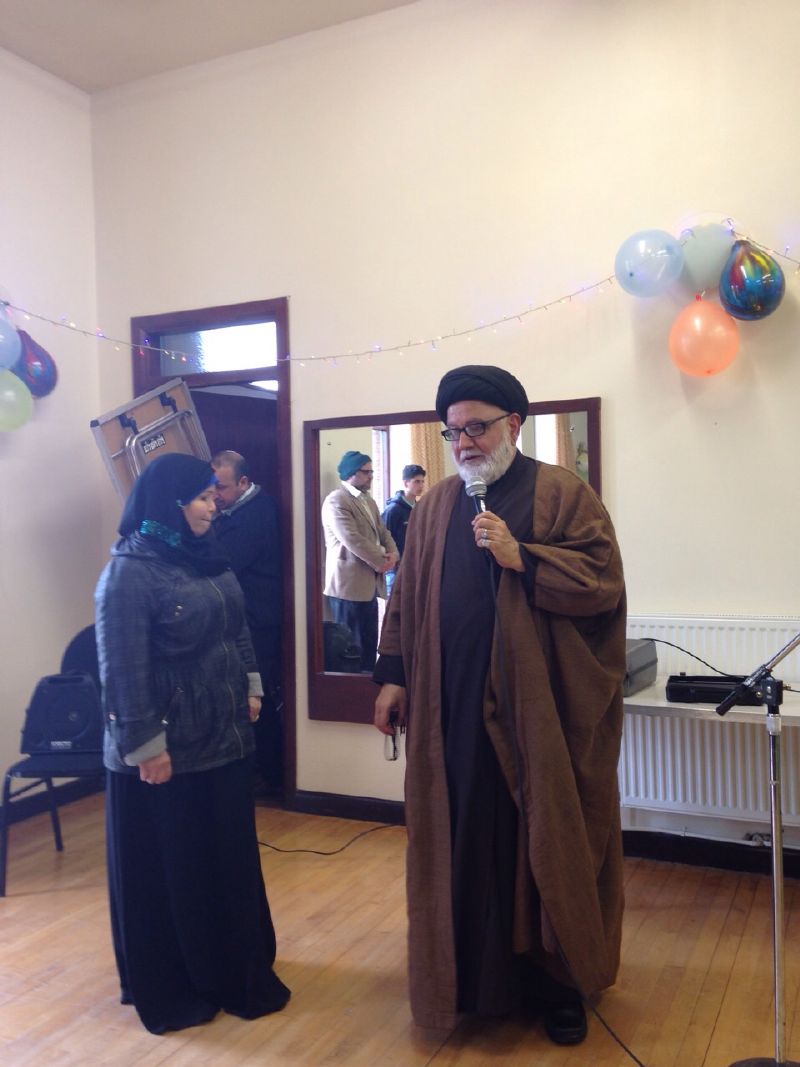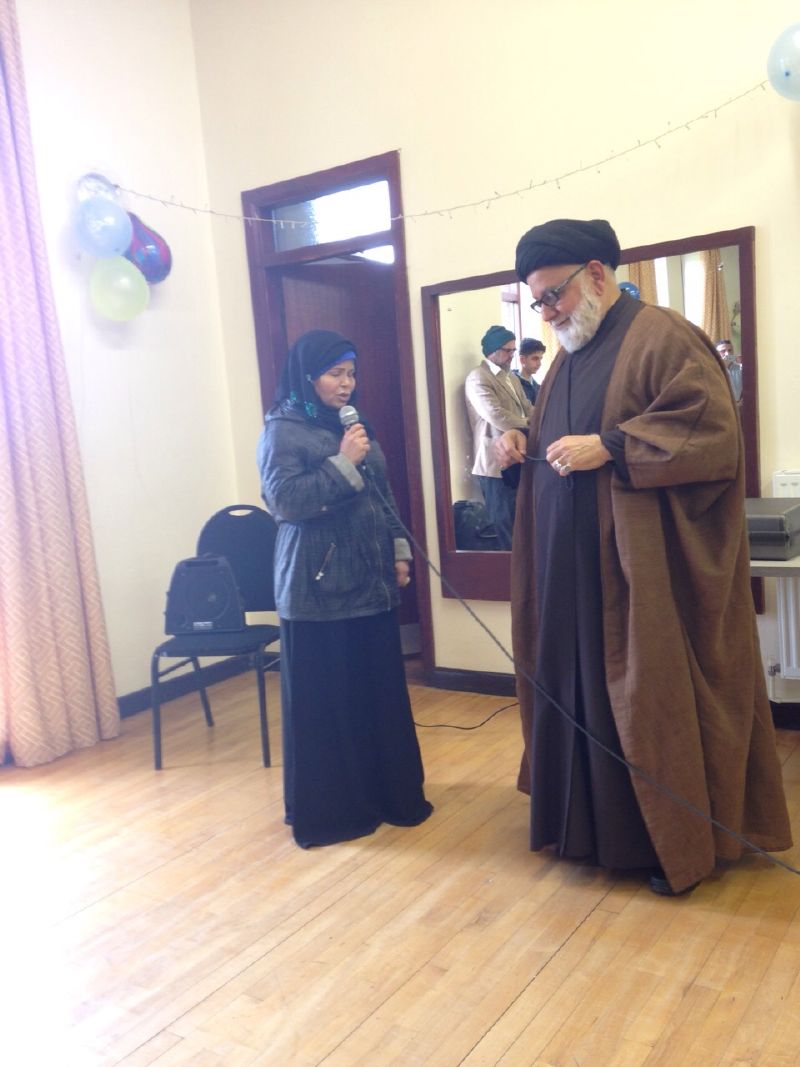Liaison office of Grand Ayatullah Sayyid Ali Al Sistani (L.M.H.L) in London, Europe, North and South America.

- Activities
- 28 Rajab 1436
Sayyid Kashmiri talks about the goals of the prophetic mission saying:
• The prophetic mission was 14 centuries ago but until now Muslims have not grasped its aims and secrets.
• The prophet mission is a divine blessing for humanity leading to perfection and happiness.
• Among the aims of the prophetic mission is to cleanse and purify the self and develop its virtues
• It is regrettable after so many centuries we see Muslims fragmented, in conflicts and disputes among themselves.
The Muslim world is celebrating fourteen and a half centuries of the mission of Prophet Muhammad (s.a.w.w.). We congratulate all Muslims and ask the Almighty to let us remain on the guided path of the Muhammadi message.
Certainly did Allah confer [great] favour upon the believers when He sent among them a Messenger from themselves, reciting to them His verses and purifying them and teaching them the Book and wisdom, although they had been before in manifest error (Holy Qur’an 3:164)
Allamah Kashmiri was speaking to a congregation of Momineen from various communities in Sheffield – UK. He said: “The most important event in the history of Islam is the change the Islamic mission created for humanity, i.e. from darkness to light and from ignorance to knowledge and from idol worshipping to worshipping God. It is exactly what Al-Zahra described in her speech:
On this occasion we and the whole world should be grateful to Allah for this great divine blessing; for the mission of all the prophets and secondly, for the mission of the prophet Muhammad (s.a.w.w.); because on his way towards perfection and happiness, man cannot forego divine guidance. Man needs guidance from Allah Almighty to go through the path perfection and attain happiness. Although Allah Almighty has given man the intellect to reach perfection and happiness, however, the human mind is limited within its own perceptions and the knowledge it possesses. Therefore, the existence of prophets and their missions is essential for man to attain perfection and happiness. For this reason, according to some narrations, Allah sent 124 thousand prophets. This huge number of prophets only came to guide people. Allah willed that the last of these prophets, our prophet Muhammad (s.a.w.w), be the best and more efficient and closer to Him, so that his message and code [Shari’a] be the ultimate one of all the messages and codes; in view of its assimilation of the language of time and human advancement and development. Reality bears witness to this. With all the advancement and development man has made, we see the message of Islam, providing it is understood correctly, remaining fresh, keeping up with civilization throughout the ages.
Therefore what lessons can we learn from it? Here are only few examples:
1- Tawheed [worshipping one god]: And ask those We sent before you of Our messengers; have We made besides the Most Merciful deities to be worshipped? (Holy Qur’an 43:45). The aim of the message of Islam is to call for the worship of one God. Never has a prophet called for the worship of another deity or called for polytheism. Therefore Tawheed is the aim and objective of the message.
2- Worship and avoiding Taghut [despotism]: And We certainly sent into every nation a messenger, [saying], "Worship Allah and avoid Taghut." (Holy Qur’an 16:36). The aim of the divine message is worship one God and stand against despots and the unjust. The first portrays man’s relationship with his God and the second with his society. In reality a socio-political stand. A stand against the unjust and a victory for justice. .. "Worship Allah and avoid Taghut." And among them were those whom Allah guided, and among them were those upon whom error was [deservedly] decreed. So proceed through the earth and observe how was the end of the deniers. (Holy Qur’an 16:36) So the one who does not commit to the aims of the message will not only be chastised on judgement day but will see the consequences in this world also.
3- Justice: We have already sent Our messengers with clear evidences and sent down with them the Scripture and the balance that the people may maintain [their affairs] in justice... (Holy Qur’an 57:25) It is the mission and aim of the message for which prophets (peace be upon them) were sent.
4- To provide proof to the servants of God: And never would your Lord have destroyed the cities until He had sent to their mother a messenger reciting to them Our verses. And We would not destroy the cities except while their people were wrongdoers.(Holy Qur’an 28:59) So by reciting the verses from the Holy Qur’an proof is provided and the situation is clarified and the public is enlightened and chastisement for he who disobeys.
5- To bring good tidings and warning: And We send not the messengers except as bringers of good tidings and warners.(Holy Qur’an 6:48) The message of Islam contains good tidings for he who listens and a warning for he who disobeys. ..whoever believes and reforms - there will be no fear concerning them, nor will they grieve. (Holy Quran 6:48)
[We sent] messengers as bringers of good tidings and warners so that mankind will have no argument against Allah after the messengers. And ever is Allah Exalted in Might and Wise. (Holy Qur’an 4:165
9- Declaring the truth and clarifying it to the people: O People of the Scripture, there has come to you Our Messenger to make clear to you [the religion] after a period [of suspension] of messengers (Holy Qur’an 5:19)
10- Beseeching the creator: And We have already sent [messengers] to nations before you, [O Muhammad]; then We seized them with poverty and hardship that perhaps they might humble themselves [to Us]. (Holy Qur’an 6:42)
11- Resolving differences between people: Mankind was [of] one religion [before their deviation]; then Allah sent the prophets as bringers of good tidings and warners and sent down with them the Scripture in truth to judge between the people concerning that in which they differed. (Holy Qur’an 2:213)
12-Piety and purification is an important aim of the message: O children of Adam, if there come to you messengers from among you relating to you My verses, then whoever fears Allah and reforms - there will be no fear concerning them, nor will they grieve. (Holy Qur’an 7:35) Therefore the message aims to create an atmosphere of piety in society.
13-Guidance: ..You are only a warner, and for every people is a guide. (Holy Qur’an 13:7) Thus the mission of the messenger is to guide humanity towards progress and righteousness.
These are some of the broad goals of the message that the mission of the Prophet was able to accomplish and transform the nation from paganism to the best nation, enjoining good and forbidding evil and believing in God. It is strange that this shift and changes in peoples and nations require hundreds of years; but the reform task pursued by the Prophet (s.a.w.w.), with divine support, was able to breach those stages within two decades and a few years (23 years) and achieve what he aspires to until he reached the year of the Conquest in the last year of his life.
When the victory of Allah has come and the conquest (1) And you see the people entering into the religion of Allah in multitudes (2) (Holy Qur’an 110: 1&2). People in their multitudes began to embrace the religion. The barriers were broken, hearts opened, trust took its roots in society and victory and conquest was achieved by the messenger of Allah, the seal of the prophets and messengers.
Although 1449 years have passed since the beginning of the Islamic mission, which enlightened the world and freed humanity from darkness to light, it is regrettable that we see a large section of Muslims living in a state of isolation from the spirit of the message and its essence. Instead of unity, friendship and fraternity, we see discord and differences between them. Instead of strength and upholding the principles and values of the message; we see feebleness in prostration – bowing on the doorsteps of the enemies, begging for their assistance and support. Instead of compassion and pride prevailing; we see forcefulness and cruelty between them. Opposite to the ways of the messenger of Allah (s.a.w.w.) and his companions Muhammad is the Messenger of Allah ; and those with him are forceful against the disbelievers, merciful among themselves. You see them bowing and prostrating [in prayer], seeking bounty from Allah and [His] pleasure. Their mark is on their faces from the trace of prostration. That is their description in the Torah. And their description in the Gospel is as a plant which produces its offshoots and strengthens them so they grow firm and stand upon their stalks, delighting the sowers - so that Allah may enrage by them the disbelievers. Allah has promised those who believe and do righteous deeds among them forgiveness and a great reward. (Holy Qur’an 48:29)
We ask the creator, the Almighty the Exalted to bestow upon us His mercy, unite our word on piety and guidance for he is the grantor of success.”

